|
Have you thought about the eventful experiences and developments of the last 24 hours? Do any touch you? Should they touch you? Here's a sample of a small fraction of twisdom ... the twitter "wisdom" that reflects what others have concerned themselves with. Here are some things people thought valuable enough to tweet. 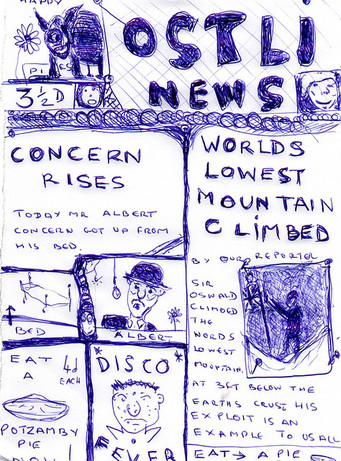 http://bit.ly/1iGNoqM http://bit.ly/1iGNoqM "Riding on the roof of a local fire truck ... in the pouring rain with some true heroes who are pulling 60+ bodies out of houses and the water ever day, Tacloban, Philippines." "Have you gotten my deluxe album yet?" "I'm on the way to Disney World.....for the first time. Losing my Disney-Virginity." "IKEA is well on its way to carbon neutrality" pas-tor (n.) 1. collector of books. 2. One who makes an idol of his/her book collection. 3. Drinker of coffee. "If in our Saturday pursuits we're far from God's presence, we're not in very good shape to worship Him on Sunday." AW Tozer "Don't chase happiness. Chase holiness. But what if the essence of holiness is happiness in God? " Get our previous album, "Comfort & Joy" here FREE for the next 24 hours. Tell your friends! "What's a road trip without gas station coffee, yo!?" Global damage from extreme weather and other disasters almost up to $200 billion a year "Recently ate at a sushi place for the first time. I have no idea what I ate & I kept expecting my luggage to roll by on the conveyor belt." "Does C. S. Lewis have something to hide?" "For Christians, this life is as close to hell as we will get. For non-Christians, this life is as close to heaven as they will get." "For those too hateful to listen when someone has a spiritual concern, we pray " "If you could remember me in your prayers tonight, world, I would appreciate it." "We can understand children being afraid of the dark but so often adults are afraid of the light" "There are far, far better things ahead than any we leave behind."[CS Lewis] What this says about people, I don't exactly know. But what it does show is that people out there are experiencing a myriad different things, and motivated enough some contribution to the global virtual noise. Is this because they're really concerned about issues? Or is it because they fear that if they don't make a noise people won't know they exist. Either way, Jesus say listen, and look behind the noise to the person I love. Let's listen more, and let God's heart move us in prayer.
0 Comments
Today's post is merely a link to an outside article ... but please read it. So many of us live life styles where the struggle is "Which bottle of wine should we open tonight". Try this life: Decisions
1. I’ll return that email tomorrow.
2. No, I can’t meet on on that evening. That’s my family time. 3. I need rest, too. 4. I don’t know the answer. 5. I need help. 6. I value my wife/husband more than I value my work / ministry. 7. I don’t have time for small group either. But I make time. Based on an article directed at church leaders (but applicable to all of us, especially #7): http://bit.ly/17I1znZ I imagine there are some Christians that I know who will be offended by the following. But as a Christian I know that from time to time I need to be offended ... Jesus really offends my (ab)normality. There is a wonderfully powerful phrase: "The tragedy of the commons" (see here). If ever there was a time in history that this was so applicable, it's now. Where are the protests that once railed against the establishment's machine and tried to keep rampant abuse at bay? Who are the challenging lyricists of today, like Pink Floyd once were - "their interests are truth and illusion, life and death, time and space, causality and chance, compassion and indifference" (See the wikipedia entry under lyrical themes - here). It's no wonder that the public face of Christianity stinks in the nose of many who do not know God as they watch the apathy of Christian inaction on oppression and greed. Can you now understand the militant New Atheism and the bitter sarcasm of non-Christians that produces such posters as those below? 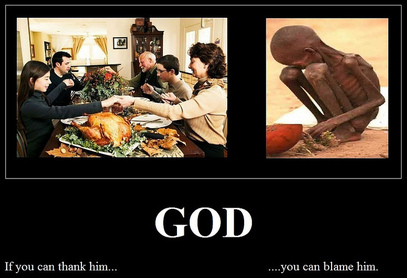 If I didn't know God personally, I too would be hugely offended by such a view of the church, and would deeply distrust the God that was proclaimed. And I would be proud to be an atheist if that is what I saw. Instead I am deeply saddened. Of course the complaints against the Christian's self obsession is little different among most non-believers too; Christian and pagan seemingly strive side by side in their pursuit of power, wealth, hedonism and personal advancement. Apart from the differences in rhetoric one will easily find the same degree of brokenness in both communities, although expressed in different ways; "as long as my comfort zone is secure" seems to be the guiding principle. How sad it is that such a strong complaint against the Christian church is justifiably made. Yet all this anger directed against Christianity, and the distrust of the Christian God, is premised on two erroneous assumptions:
But stop for a moment and consider the logic of these. Posters like those shown here reflect a real emotion rooted in a reality, but the inferences drawn by non-Christians are illogical and wrong. Christianity has as a foundational tenet that we are a broken, corrupted, selfish, greedy and proud people. That some would claim that those of faith show no practical evidence of this faith, is perfectly in accord with the base human nature Christianity ascribes to us! It is unthinking foolishness to think that we would all correctly and consistently portray God's nature perfectly ... we're broken, some are very broken and unaware! 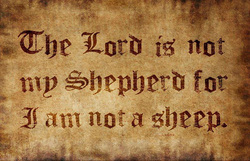 Likewise, an all powerful God does not mean an all imposing God. Love implicitly means giving away control, and so God has given us free will, for it is through choice that one finds potential for the greatest love. God want us to have the chance of a love relationship that transcends robotic control. The paradox is that God gives up (for now) authoritative control and asks only that we give up trying to be God. Because there will come a day when our choice to accept and reject will be final. In any community of Christians there is a continuum of reality from those who are really transformed in a deep relationship with God, all the way through to mere cultural Christians of convenience - just as we find marriages that are deeply loving partnerships and marriages that are full of abuse and destruction. Likewise, in any community unrelated to faith the same spectrum of people occurs. There are some who seek and find, some who struggle endlessly with the search, and some who say "I am all I need". This is the deep sadness; that we have largely become a culture of self promoting individualists. We have built walls around ourselves hoping to make our own little eternity, while the sand trickles though the hourglass and a loving God stands at the door and knocks. And so it was very interesting to come across this move to grow atheist churches: a godless Sunday gathering. There is much to be commended in this: the faithless come together (we need to learn community all over again and find at least some faith in each other) to sing awesome songs (music is powerful, and we desperately need more awe), hear interesting talks (if ever a society needed to fight the "comfortably numb" it's our society), and to think about improving ourselves and helping other people (sadly it's still the self first, and mostly only thinking about others). Now, some Christians will surely feel threatened by an atheist event such as this. But such Christians are probably of the persuasion that they think they need to defend God. I don't need to defend who my God is, he is more than capable of doing that without my aid. I would argue that any move among people that looks in awe at our existence, that asks hard questions about our very nature, and wonders at the meaning of good and bad, life and death, and where values come from, is only likely to draw more and more people to God. For he is a God of wonder, awe, reason, and honest questioning by those brave enough to step beyond personal preference. Ultimately, however, I think this move will suffer exactly the same fate as churches that build on a self defined purpose, whether in the name of God or not. I fear that the move of the atheist mega-church will become one of self affirmation, of building comfort zones, of massaging consciences, and making people feel good about themselves with little real action to redress the ills of the world. Not unlike some churches. But my God is not mine: I am his. This is not a God made in my image, this is a God of alien perfection, one who inverts my perverted perception of normality. A God of relationship, of awe and wonder, who sets the agenda, and welcomes the exploration of the deepest of mysteries. His nature and character are definitive and not for me to define. He is not safe. Yet once found, how could I ever walk away from that reality. This is the tragedy of the commons: we consume one another while ignoring that we may one day be consumed.  http://bit.ly/1cNg3dP http://bit.ly/1cNg3dP This was a talk that’s hard to give when you have friends who are facing death, or have loved ones who are dying, or if you’ve recently lost someone. I find myself at present in all three categories. If you are too, it probably hurts to read about death. But I found it helpful to talk about it, and I hope you’ll also find this helpful to read. Death is many things to many people. Terry Pratchett envisages death as a somewhat austere skeleton who rides a flesh and blood horse called Binky, who likes cats, once had an apprentice, has an adopted daughter called Susan, wants to understand human emotion so much that he has been known to get drunk, and once took a vacation to experience life – resulting in a significant backlog of dead people trying to get to the other side. I know some people who have nightmares about dying, some friends who are atheists fear it because they believe that then there’s nothing more (I even know someone even burst into tears on that realization), while others just won’t contemplate the idea. A much more prosaic and boring way to think of death is that it's the simple dissolution of the body. Whichever way you look at it, the one constant of life is that you will die. So welcome to life, the prelude to death. Read more HERE  Theodicy: θiˈɒdɪsi - from the Greek theo- "god" + dikē "justice" A vindication of God's goodness and justice in the face of the existence of evil. With the world in an undoubted mess, should we be blaming God? After all, he made it for us, so if he’s all-powerful, couldn’t he sort it out for us? It’s a compelling argument against belief in an all-powerful benevolent God, and as an argument it dates back at least to Epicurus, a Greek philosopher who lived about 300 years before Christ. He stated it like this:
• Is God willing to prevent evil, but not able? Then he is not omnipotent. • Is he able, but not willing? Then he is malevolent. • Is he both able and willing? Then whence cometh evil? • Is he neither able nor willing? Then why call him God? As pointed out in the previous talk, this argument is only relevant if the God we believe in is a personal God who cares about us. So let’s re-state the title of this talk, because this is the real issue: Why does a good God let us suffer? Jesus even promised that “in this world you will have trouble” (John 16:33). Why? Read more HERE 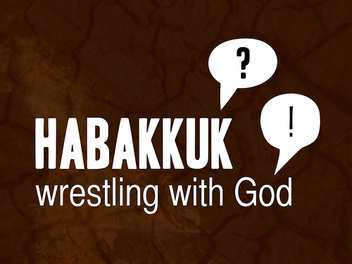 The oracle that Habakkuk the prophet saw. O Lord, how long shall I cry for help, and you will not hear? Or cry to you “Violence!” and you will not save? Why do you make me see iniquity, and why do you idly look at wrong? Destruction and violence are before me; strife and contention arise. So the law is paralyzed, and justice never goes forth. For the wicked surround the righteous; so justice goes forth perverted. (Habakkuk 1:1-4) Where is God when it hurts?
The first thing we have to do is accept that this question only makes sense if we come from a belief in a God who is involved with the world in some way. Without a belief in God or more precisely a personal God there is no way we can expect God to be there when life is hard. I will try to provide some answers from my experience and reading – but like faith, the answers I can offer are easily rejected if you are not open or ready to receive them. One person may find coincidences where another sees answers to prayer. One may find silence an example of God’s mystery while another feels the absence of God. One understands tragedy as a sign that God doesn’t exist while another holds onto a wounded God feeling pain alongside us. Your experience may be very different to mine and words that provide me with comfort may do nothing for you All I can offer is an introduction into the truths I believe. Read more HERE |
Important: The views expressed on this blog do not necessarily reflect the official position of our church
Like to Write? Archives
June 2015
|


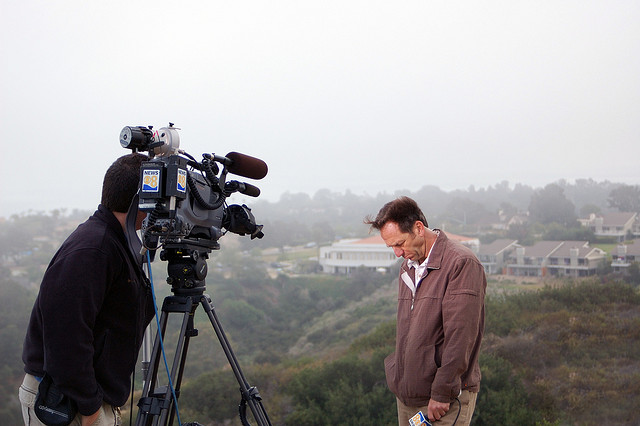
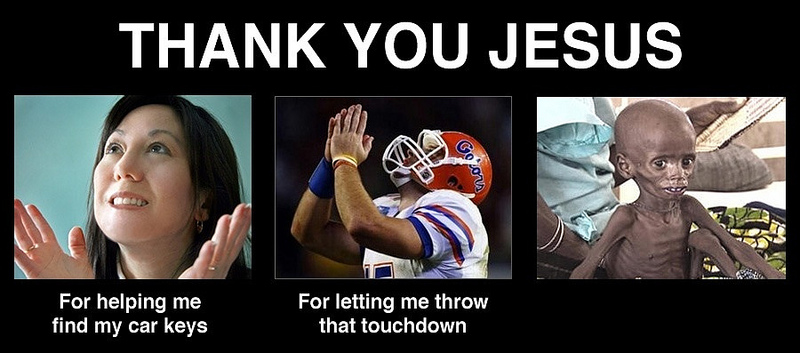
 RSS Feed
RSS Feed

